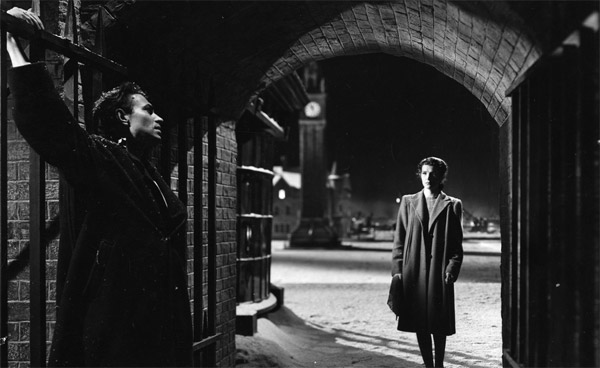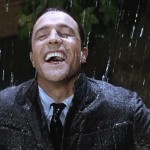Odd Man Out Review
It’s finally happening: Director Carol Reed is getting the recognition he deserves.
Of course, it’s only 60 or 70 years too late to make a difference in his career. And of course, I’m only referring to the small (but sometimes deafening) community that goes nuts over things like auteurship, black and white cinematography, and the Criterion Collection. But damn if it doesn’t make me feel all tingly inside. Reed is typically only ever given much credit for The Third Man, and even then, it’s faint praise with many (erroneously) believing Orson Welles was the source of the film’s creative vision. No matter. I know Reed is a master, and it’s starting to feel like the rest of the film world is realizing this, too.
Ironically, I thought all that before ever seeing Odd Man Out, which might well be his best and most interesting film. Taking place over the course of one cold, wet night in a Belfast that’s both unnamed and full of character, we’re introduced to Johnny McQueen (James Mason) and his fellow members of the “Organization,” a generic stand-in for the IRA. Johnny’s been holed up in an Organization safe house belonging to a woman, Kathleen (Kathleen Ryan), who pines for him and cares little for his politics, since escaping prison months earlier. He’s about ready to execute a robbery of a mill with a handful of his best men, but some of them think their leader’s isolation has left him soft and unable to do what’s necessary for the good of the Organization.
Their hunch proves right. It all goes to hell when a security guard stops Johnny, who’s too slow to allude the guard. He takes the man’s life accidentally after first taking a bullet to the shoulder. Bleeding and getting weaker by the minute, he holes up in a bomb shelter while the town’s lawmen blanket the area. Meanwhile, the Organization plots a rescue mission for their hero, who’s barely lucid and stumbling through the town’s dark alleys, and a whole town full of bystanders ask themselves what side they’re on and how much it’s worth helping this gravely injured man.
The film works on a number of levels, but I was most taken with the way it examines the differing motivations of the men and women of this town. Where they’re concerned, the film treats its main character as a MacGuffin of sorts. Johnny could have been a sick dog or a bag of cash, and watching these men and women fight with each other, not to mention their shoulder-ridden angels and demons, about what’s right and what’s practical would still be fascinating. The highlight of these characters is easily Lukey (Robert Newton), a drunk painter who can’t get his subjects’ eyes quite right. He wants to turn a dying Johnny into his masterpiece, and his quest to do so is the film’s foray into the surreal. A totally unexpected and truly bizarre turn, it’s what will make or break the film for many viewers. I dug the hell out of it.
Some of the tamer interactions our sluggish and battered hero have are with a pair of sisters, both amateur nurses of sorts, who are quite surprised to find a gun on Johnny’s person, a cab driver who leaves Johnny in a bathtub, and a young couple trying to find a dark and quiet space for some alone time. Each treats Johnny differently, and in turn, his injury forces him to react differently to each one, wearing varying degrees of exhaustion on his face, in his eyes, all over his body. There are times at which he hallucinates interactions with people, with paintings. Despite being a criminal and a killer, he’s very sympathetic. He’s extraordinarily regretful about his actions and seems like he’d welcome death at times. James Mason gives an outstanding performance. It’s probably the role of the character within this film that prevents this work from being regularly named among the actor’s best stuff, but that’s an error I hope time corrects like it has Reed’s and this film’s reputation.
Being that it’s a Carol Reed noir, the deliciousness of Odd Man Out‘s cinematography and set design shouldn’t surprise many viewers. Its Belfast is a shadowy hell for Johnny that one imagines might look quite quaint and approachable on another day (or in another director’s hands). The zither is the only thing separating this from The Third Man on a craft level, but even then, Odd Man Out‘s score (courtesy of William Alwyn) is appropriately moody.
The film goes out of its way to be apolitical, but that’s far from a knock against it. On the contrary, it allows us to focus on the story’s natural tension, the wild characters, and the moral compass that’s always changing as new supporting characters get introduced every scene or so. It’s a marvelously entertaining film that ranks among my most cherished discoveries during my six odd years as a critic.















